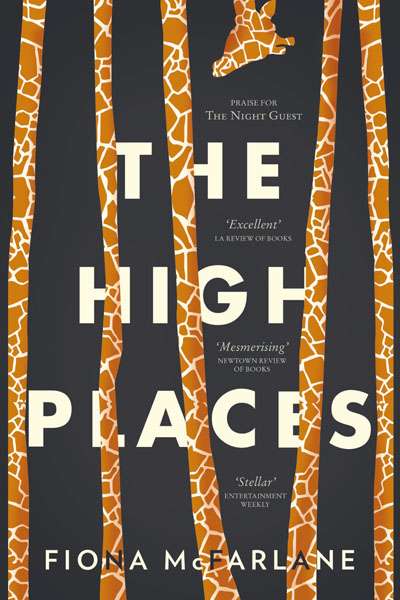Accessibility Tools
- Content scaling 100%
- Font size 100%
- Line height 100%
- Letter spacing 100%
Sarah Holland Batt
The ABR Podcast
Released every Thursday, the ABR podcast features our finest reviews, poetry, fiction, interviews, and commentary.
Subscribe via iTunes, Stitcher, Google, or Spotify, or search for ‘The ABR Podcast’ on your favourite podcast app.
‘Where is Nancy?’ Paradoxes in the pursuit of freedom
by Marilyn Lake
This week on The ABR Podcast, Marilyn Lake reviews The Art of Power: My story as America’s first woman Speaker of the House by Nancy Pelosi. The Art of Power, explains Lake, tells how Pelosi, ‘a mother of five and a housewife from California’, became the first woman Speaker of the United States House of Representatives. Marilyn Lake is a Professorial Fellow at the University of Melbourne. Listen to Marilyn Lake’s ‘Where is Nancy?’ Paradoxes in the pursuit of freedom’, published in the November issue of ABR.
Recent episodes:
'February Snow' by Sarah Holland-Batt | States of Poetry Queensland - Series One
Unexpected on a day like this—
sun shuttling through the 125th Street bridge,
plastic strung in Harlem's elms like tattered wreaths:
unseasonable, unreasonable spring.
Under the red shadow of the Grant tenements
lunchtime noshers clatter china at Bettolona,
dogwalkers spread out on the grass in Sakura Park,
men from the halfway home
drag their deckchair ...
'Treecreeper' by Sarah Holland-Batt | States of Poetry Queensland - Series One
Bebop sparkplug spurred in withershins,
loop-de-loop interloper, he hop-steps
ravines of bark, shirking faultlines,
going solo, headstrong, scion of impatience,
juddering like the stalled engine
of prop-plane on tundra runway, skirting
and skimming up, peeling out,
reeling in spiral, spy, scout, prematurely
thrusting into the unknown, Magellan
runnin ...
How fine it is to mutiny
against my tired mind—
say self, you are through,
to smash into a mirrorball
of echoes all scaled
in dizzying Nordic blue
feel the universe tilt
and infinitely rebuild
to flicker
like a skerrick of spindle silver
needle-quick,
and never be held—
this is the freedom
of the uni ...
'Quetzalcoatl' by Sarah Holland-Batt | States of Poetry Queensland - Series One
—for Vera Pavlova, in Mexico City
On the bus to Teotihuacan, we turn
a new god's name on our tongues
like a charm, jagging past
cinderblocked hills
chocked over the motorway,
grey pixels stacked so high they merge
with the smoked white Mexican sky—
then a guitar player in the aisle
begins a song whose only familiar
wo ...
'Lapis Lazuli/Sketches from the Nile' by Sarah Holland-Batt | States of Poetry Queensland - Series One
I.
You tilt lapis to your lip –
a day light as wicker.
By the water, bullrushes bow
into sailboat blue, lace-necked
egrets fossick and pick,
and the elements rearrange
a goliath heron's skull to mud.
Up on the embankment
a crouching child scratches
his name into a temple wall.
II.
Ultramarine, lapis lazuli—
Jennifer Maiden's The Fox Petition: New Poems (Giramondo) conjures foxes 'whose eyes were ghosts with pity' and foxes of language that transform the world's headlines
... (read more)Cassandra Atherton reviews 'The Hazards' by Sarah Holland-Batt, 'Conversations I've Never Had' by Caitlin Maling, 'Here Be Dragons' by Dennis Greene, and 'The Guardians' by Lucy Dougan
Contemporary Australian poetry has a complex and ever-evolving relationship with the land, both at home and abroad. Almost twenty-five years post-Mabo and entrenched in ongoing ecological crises, Australian poets explore new ways of experiencing and defining place. Where misguided nationalism sought to limit Australian poe ...
Books of the Year is always one our most popular features. Find out what our 41 contributors liked most this year – and why.
... (read more)


